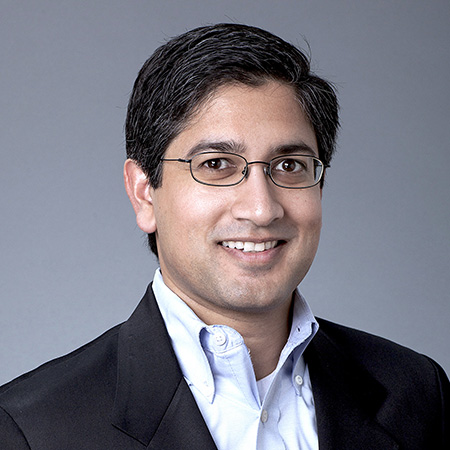On the lighter side of things we ask Shuman Ghosemajumder, Global Head of AI at F5 and former CTO of Shape Security what makes him tick.
What would you describe as your most memorable achievement?
I’ve had many enjoyable experiences in my career, but my most recent journey-helping to grow Shape Security from its early days to joining F5 last year-has been one of the best. At Shape, I was fortunate to lead a team of the smartest engineers and product managers I’ve ever met. Our team built a unique AI platform for cybersecurity, which grew rapidly over the course of eight years. It was exciting to see that adoption, which turned us into the primary application defence for the majority of the largest banks, airlines and federal agencies. We were inspired to know that our technology protected global brands that we and our families relied on every day, during the period when cybersecurity became a huge societal issue. That journey resulted in our acquisition by F5, a company whose products helped build the Internet. F5 includes NGINX, the world’s most popular web server and BIG-IP, the leading application delivery controller, giving it a vast amount of potential data to leverage for our customers. Shape’s data platform is the basis for a new category of products my teams at F5 are now building, to unlock the power of application data for companies around the world through AI-which I am sure will produce some new memorable experiences for us all.

What first made you think of a career in technology?
The support and guidance I received from my parents and teachers from an early age made a huge impact on me. When I was eight years old, my parents bought me a Commodore 64. However, they didn’t buy me any games, so the only way I could have fun with it was by learning how to program. In high school, my computer science teacher introduced me to a start-up called Groupware, which gave me my first job as a software developer. They made me the solo developer on an interesting new product-the first graphic design software that would allow groups to edit documents together in real-time. This was years before Google Docs and Slides and other real-time collaborative tools existed. It was also prior to the World Wide Web, so groups had to collaborate on local area networks. We launched the product in 1991 and it was sold throughout North America. They also gave me the opportunity to be the presenter for its launch at an international conference. As a 15-year-old, it was an incredible experience for me. That was my first introduction to the technology industry and I knew then that it was where I wanted to spend my career.
What style of management philosophy do you employ with your current position?
I think popular concepts like ‘servant leadership’, ‘integrative thinking’ and the classic ‘management by walking around’ all contain good ideas, but there isn’t a single philosophy I subscribe to. Good leadership and management principles are not modern inventions and there isn’t a single management book or philosophy that is a silver bullet. In most situations, I try to focus on providing vision, clarity and support; constantly learning and making rapid adjustments; and being outcome-driven for all stakeholders, especially customers, employees, investors and partners.
What do you think has emerged as the technology trend of 2021 and why?
For many years now, cybersecurity has been one of the biggest trends and 2021 accelerated this as we all conducted even more of our lives and work through online applications. Every single industry is transformed by online technology and every single online technology has cybersecurity issues. Society as a whole has barely scratched the surface in understanding the scope of these issues, so I see continued acceleration in all aspects of cybersecurity.
What do you currently identify as the major areas of investment in your industry?
Some of the biggest macrotrends in the industry are cybersecurity, Artificial Intelligence and Edge + cloud computing. These are all areas that are changing not only the way we think about technology, but how we approach the world. We are making big investments in these areas ourselves at F5. In cybersecurity and AI, of course, we have Shape, which was acquired last year. This January, we finalised the acquisition of Volterra, the first universal Edge-as-a-Service platform. Combining our portfolio of technologies is enabling us to create the first Edge platform built for enterprises that will be security-first and app-driven, with unlimited scale.
How do you deal with stress and unwind outside of the office?
To reset my thinking, I enjoy regularly turning to completely different types of challenges. I left Google in 2010 to help launch TeachAids, an educational technology nonprofit spun out of my wife’s doctoral research at Stanford. We build free products for difficult public health education topics, including HIV/AIDS, concussions and COVID-19 and our software is used in 82 countries. My wife has led TeachAids as CEO from the beginning and while I don’t have as much time to dedicate to it as I did in the past, I continue to serve on the board and help however I can. Last year, when it became clear we were headed into a global pandemic, I had the opportunity to lead a remarkable group of young people and scientific experts at several universities through TeachAids to launch a new type of resource for education and research, called CoviDB.org. Using technology to directly help society is rewarding in a way that I find recharges and inspires me.
If you could go back and change one career decision, what would it be?
One thing I might change is when I moved to Silicon Valley. I first came here when I joined Google in 2003. That made me realise that it would have been amazing to be in the valley even earlier, especially while the web was taking off in the late nineties. I actually visited Palo Alto in the early nineties, but moving here seemed almost unattainable as a kid growing up in Canada.
What are the region-specific challenges when implementing new technologies in Europe?
Data privacy regulations and expectations are often viewed as singular challenges in Europe, but I see them as new opportunities. Companies should invest in data protection and privacy controls not because legislation forces them to, but because that is what is increasingly demanded by customers and societies. Making those investments is what will ensure their long-term success. This is why robust data privacy capabilities are a core part of our approach.
What changes to your job role have you seen in the last year and how do you see these
developing in the next 12 months?
Aside from the shift to remote working, the main changes all stem from growth. Leading Artificial Intelligence and data at F5 is an incredibly fast-moving, exciting area and we are scaling like a start-up. I think all successful early-stage start-ups essentially transform into a different company every year, so that brings a constant stream of new challenges and opportunities.
What advice would you offer somebody aspiring to obtain a C-level position in your industry?
The most insightful and concise advice I’ve heard is from Jack Welch, the former CEO of GE, who summarised his key to success in a single word: ‘overdeliver’. Whatever you’re expected to do, exceed those expectations. Most of the time, it means working harder. Other times it requires creativity and ingenuity to stand out. Sometimes the ability to overdeliver in a moment comes as a result of investments you’ve made in the past-in yourself, your relationships, or specific areas of work-so thinking long-term is also important. But I can’t think of any better piece of career advice than to always look to overdeliver in some way.
Click below to share this article

